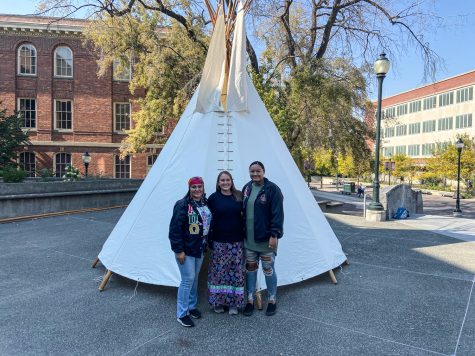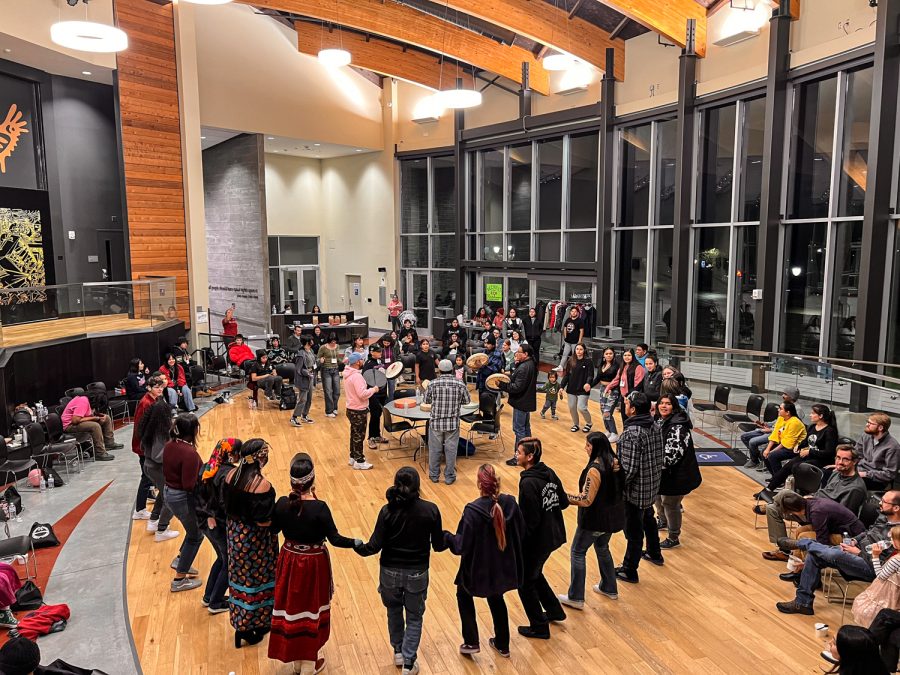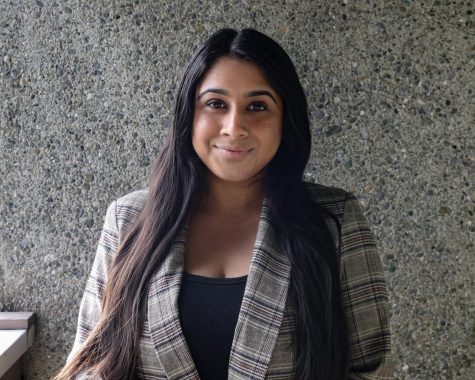‘I am here because of so much strength that was put in the people before me’
Native American Heritage Month lifts voices, culture; WSU organizations present multiple events
Students participate in the Round Dance in November 2022.
November 9, 2022
To Tommy Williams, Native American Heritage Month is an opportunity for voices that are silenced to be heard.
“A lot of people have that privilege to not know what it feels like to have your own culture not be heard and to suffer in silence,” he said.
Williams, Native American Programs retention specialist, is an enrolled member of the Nez Perce tribe and a former collegiate athlete. After his parents separated, he was raised on the reservation by his mother.
“For me, being raised around in the tribe, my identity was the biggest thing I had to learn how to fully understand because I [am] half-Black, and I didn’t know how to go about that until I was away from my people,” he said.
Jamie Kness (she/they), a science communication and multimedia journalism double-major, is a member of the Navajo Nation. Despite not growing up on a reservation, she was connected to her Native roots through her aunt.
“I want to become a journalist because of my aunt, well my aunt by choice,” Kness said. “She would do journalism work for her tribe, and I was really inspired by her to do the same thing.”
They said their aunt’s journalism consisted of working to pull attention to Indigenous issues and news, which are not covered as much in the mainstream media.
Kness said this month is important to her because it is a time when Indigenous issues are finally put on the forefront. It is not just a time for discussion, but a celebration of Indigenous people.

Adviser Joelle Edwards with Jamie Kness and Ermia Butler, leaders of Alpha Pi Omega sorority, stand in front of the tipi demonstration on Indigenous Peoples Day.
“It’s looking back on all that awful things that was put through on Indigenous tribes and people and being like ‘wow, my family, I survived, I’m here, I’m still here,” she said. “It’s looking at that and being like, ‘I am here because of so much strength that was put in the people before me,’ and that’s something I think every Indigenous person should be celebrating.”
Kness said an issue that people outside of Native American communities should be talking about is the Supreme Court trying to get rid of the Indian Child Welfare Act. This is a federal law that provides guidance to the handling of crises affecting Native American children, families and tribes.
“It prioritizes keeping Indigenous children within their tribe in their community. Say someone’s in the adoption system, it puts in the emphasis and priority of them still having ties to the Indigenous community,” they said.
In addition to being active in her community, Kness is the president of the Xi chapter of Alpha Pi Omega Sorority, Incorporated, a Native interest sorority.
“Whoever joins is basically stating that they’re interested in Native issues, so our first step that we do is all about providing resources for our sisters, for the Native women that end up joining,” they said.
Williams said he felt there was more inclusion and diversity from the United Tribes Technical College he attended, which inspired him to work in higher education for Native American Programs. Williams said he plans to be at WSU for a long time to support Native American students and help create a voice for issues that need to be addressed.
“I wanted to ensure that [Native American students] felt included in all their classes and clubs. I wanted to make sure they didn’t have to go through anything that I went through,” he said.
Before Williams attended the United Tribes Technical College, he went to another school with a football scholarship, which was cut down toward the end of his senior year.
“I asked them why and it was basically because I was Native American,” Williams said. “They had the stereotype that we had all this money, and so I had to basically take out more loans than I needed to and it [was] all based on the stereotype, they didn’t even know what tribe I was from.”
Kness said three things non-Native American people can do for Indigenous issues is to advocate for them, educate themselves and take some action in their votes.
If students would like to participate in activities for Native American Heritage Month, there is a Talking Circle event with the Native American Women’s Association and Ku-Ah-Mah on Nov. 9 with several more events following it, including the Saturday football game where the community will be recognized.











